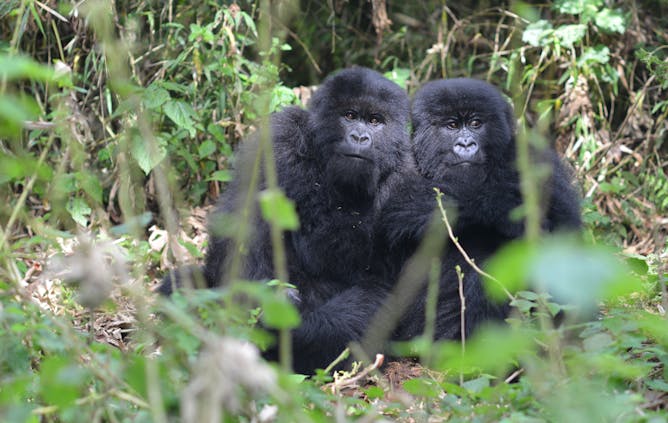|
On a recent trip to New Delhi, my most memorable times were spent with my school friends, sharing the journey of our lives. In Cambridge, Massachusetts, where I live, I eagerly wait for the weekends so I can get together with my friends over a cup of tea or a more leisurely meal.
Friendships are valuable for us all, and everyone has experienced the joys involved, and even the heartbreak of losing a friend. It is no surprise that the 4th century B.C.E. philosopher Aristotle wrote that “no one would choose to live without friends,” even if they could have all other good things instead.
Michigan State University philosophy professor Emily Katz writes that her students are “astonished” when they recognize how much they learn about their modern-day relationships from Aristotle. Katz shares three important lessons on nurturing and making friends from the ancient Greek thinker.
This week we also like articles about how Appalachia’s opioid crisis is portrayed in novels, songs and artistic photography, a big benefit older people derive from exercise and the role of AI in stock trading.
|

Aristotle (center), wearing a blue robe, seen in a discourse with Plato in a 16th century fresco, ‘The School of Athens’ by Raphael.
Pascal Deloche/Stone via Getty Images
Emily Katz, Michigan State University
A scholar of ancient Greek philosophy writes about Aristotle’s timeless advice on how to nurture and keep friendships.
|

A lot of bad things can happen to young mountain gorillas in the wild.
Dian Fossey Gorilla Fund
Stacy Rosenbaum, University of Michigan; Robin Morrison, University of Exeter
In many animals, including humans, adverse events in youth have lasting negative health effects over the life span. But new research suggests something different is going on in mountain gorillas.
|

The milk crate challenge went viral in the summer of 2021. ER doctors weren’t amused.
Apu Gomes/AFP/Getty Images
Elisa M. Trucco, Florida International University; Julie Cristello, Florida International University
Adolescent brains are especially vulnerable to risk-taking and social pressure. But there are steps parents can take to steer their teen away from dangerous social media stunts.
|
|
|
-
Evan Papa, Tufts University
Lifestyle factors like physical activity, diet and sleep can lower the ‘biological age’ of your cells and tissues and reduce age-related physical decline.
-
John Logan, San Francisco State University
Young, motivated employees are pushing the movement for union representation among U.S. workforces. Is it time for management to get on board?
-
David Favre, Michigan State University
The Supreme Court has upheld a controversial California law requiring pork sold in-state to be humanely raised, no matter where it’s produced. Pork producers say it could drive up food prices.
|
|
The Conversation Quiz 🧠
|
-
Here’s the first question of this week’s edition:
Which 68-year-old author of "The Poisonwood Bible" and "Pigs in Heaven" just won a Pulitzer Prize for her new novel, "Demon Copperhead"?
- A. Barbara Walters
- B. Barbara Billingsley
- C. Barbara Kingsolver
- D. Barbara Cartland
Test your knowledge
|
|